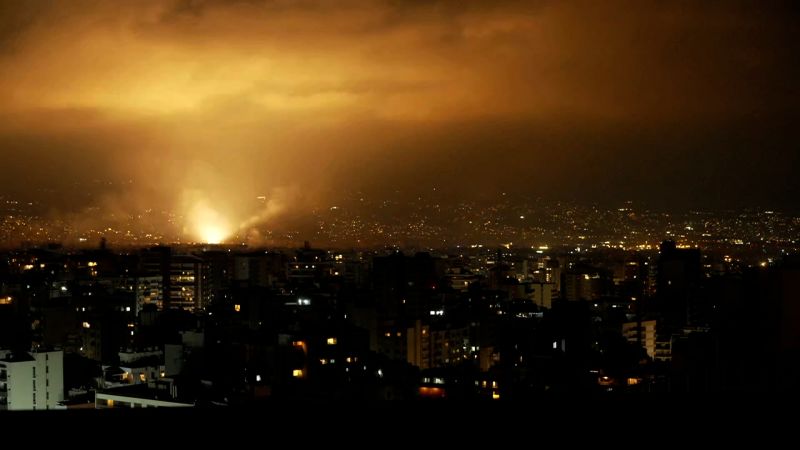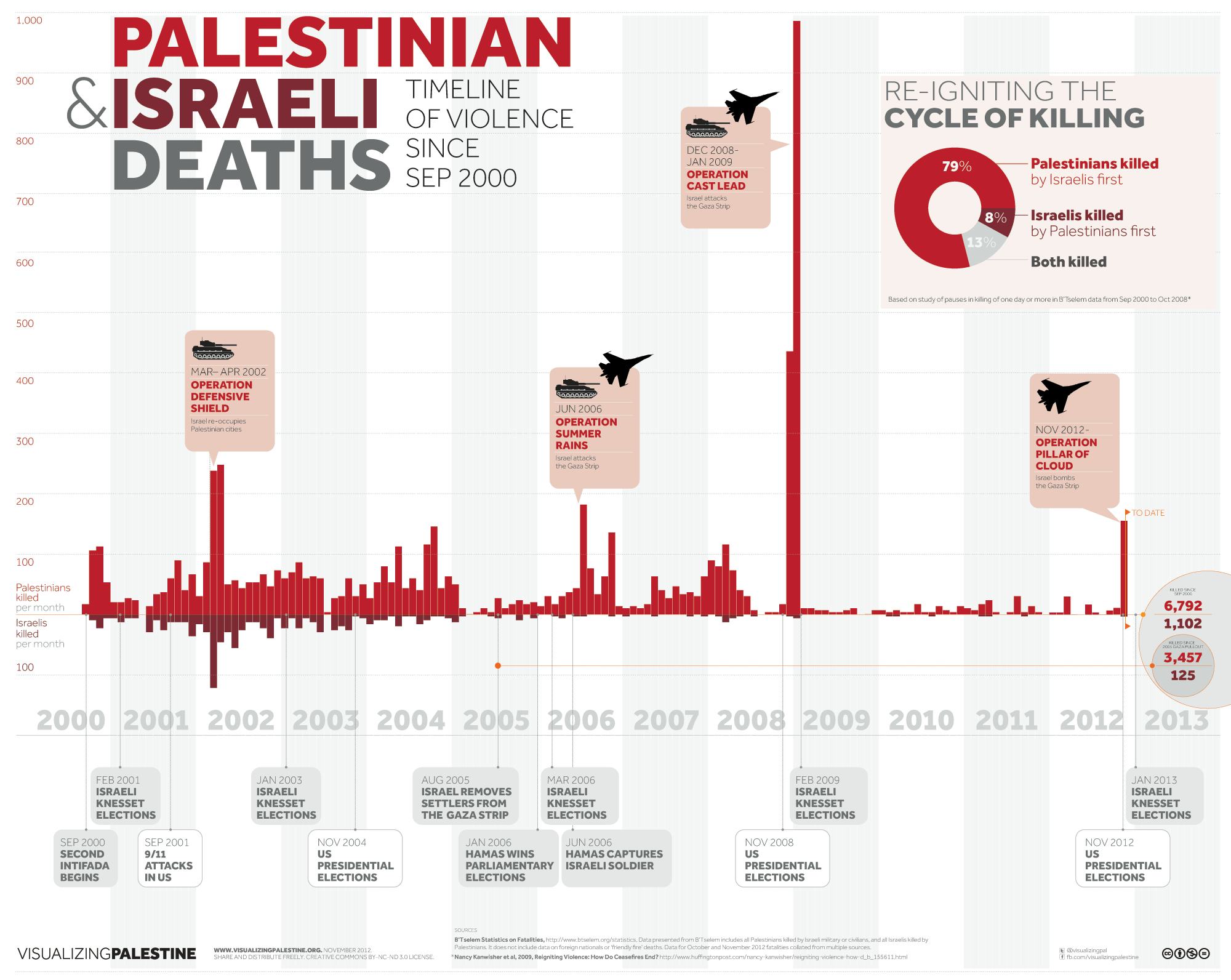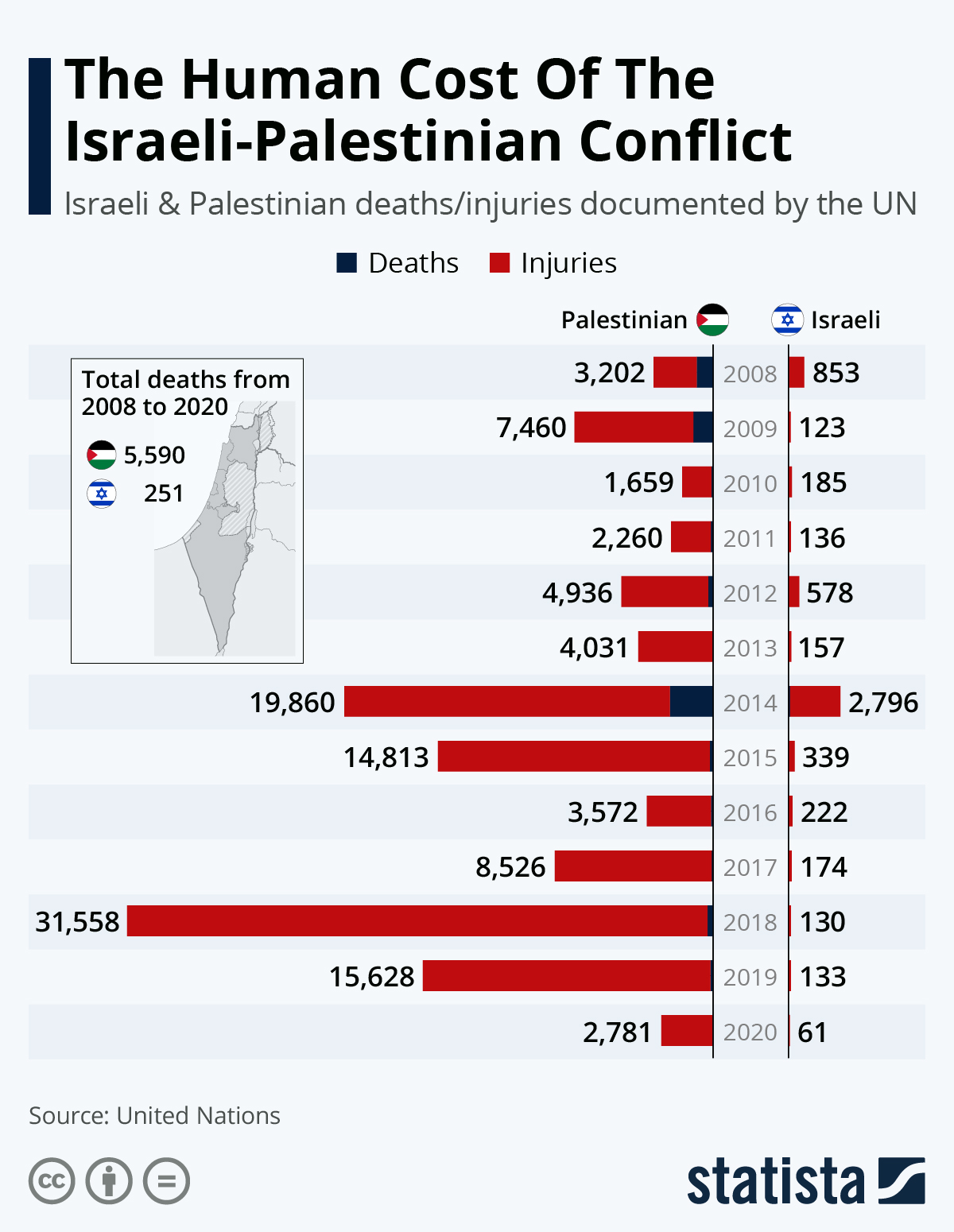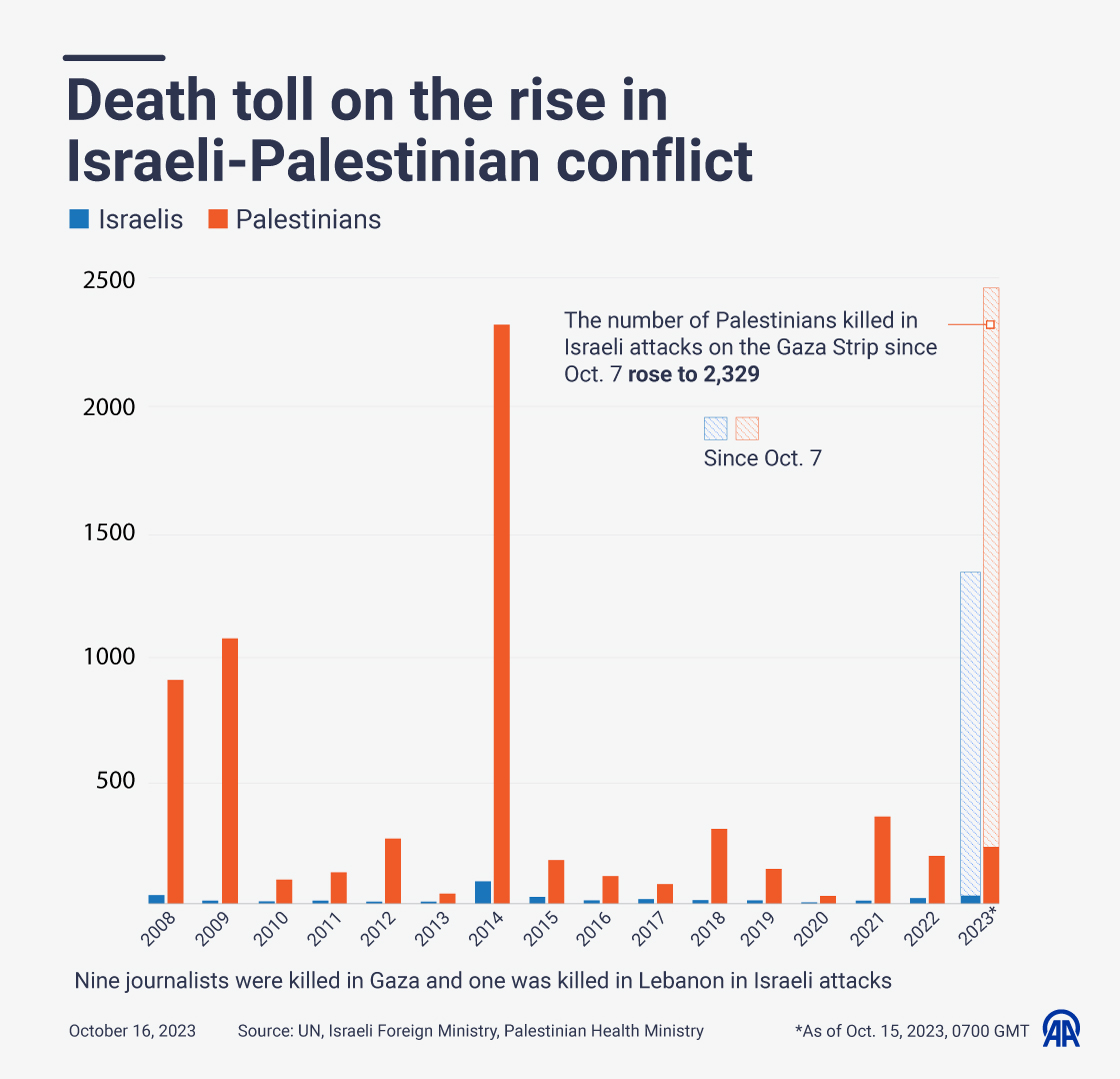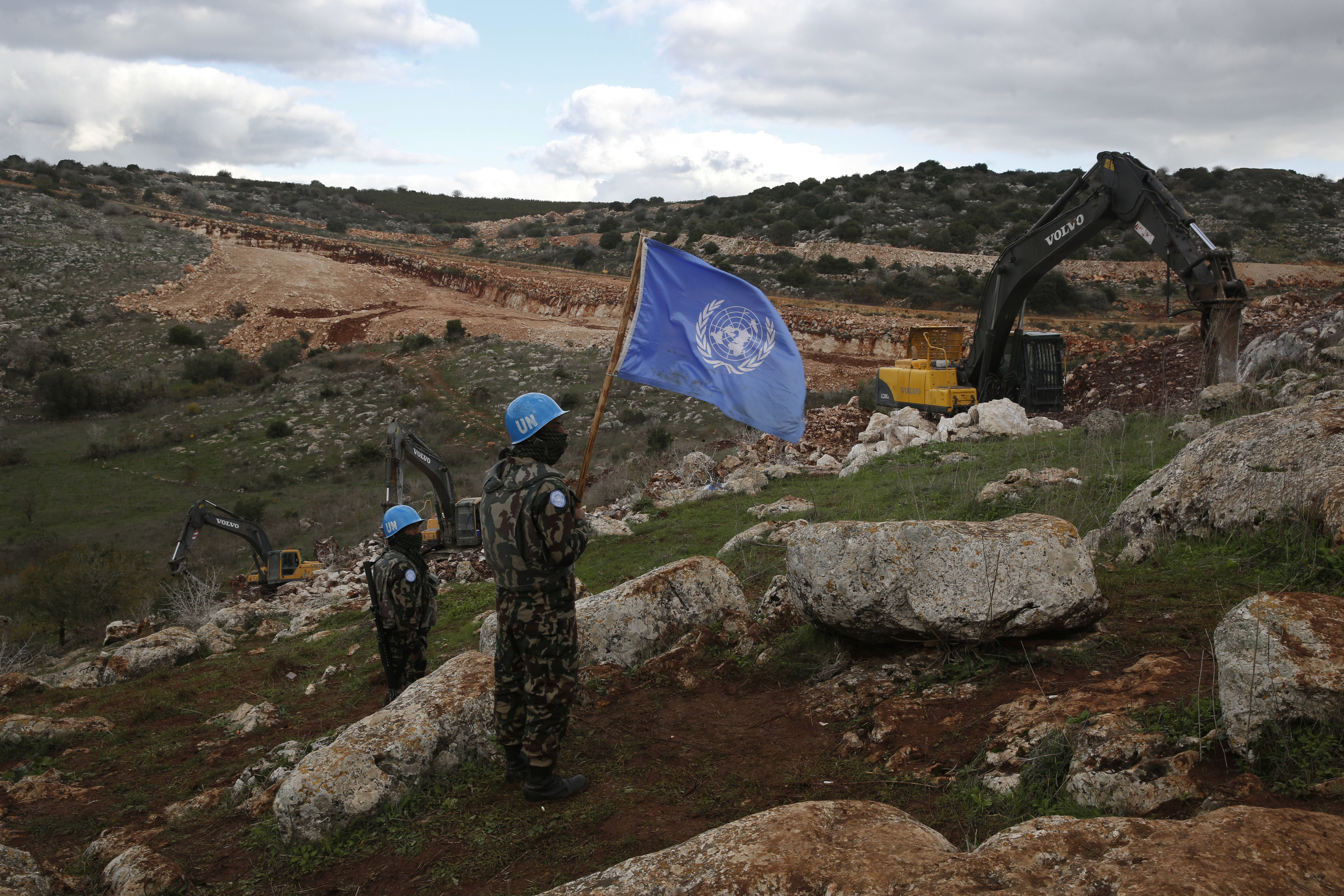Large pro-Palestine protests expected in New York
Thousands of demonstrators have taken to the streets of New York today. They’ve been showing up at different parks and locations around the city.
We’re seeing student groups, labour unions, Orthodox Jewish groups and Jewish Voices for Peace, a very young group that has been organising around the cause of Palestinians.
There is a huge police presence behind me as demonstrators are expected to arrive in the coming minutes.
They’ve been marching around the city. We know that in at least 10 universities today, student groups called for walkouts from their classes, and those university students gathered at one park to make their voices heard to call for an end to the genocide in Gaza and the ongoing hostilities in Lebanon.
This movement has been taking place since last year but only seems to be getting bigger, and it certainly has attracted a lot of attention on this momentous day.
US is not currently pushing to revive Israel-Hezbollah ceasefire deal, officials say
Two weeks after Israel upended a US-led ceasefire proposal with Hezbollah, the US is not actively trying to revive the deal and has resigned itself to trying to shape and limit Israeli operations in Lebanon and against Iran rather than halting hostilities, US officials told CNN.
The US’ inability to halt Israel’s intense bombing campaign and ground invasion of Lebanon, which has killed over 1,400 people in less than three weeks and displaced over 1 million more, has raised questions about whether Benjamin Netanyahu’s government is disregarding the Biden administration’s calls for more restraint like it did in Gaza, leaving the White House again looking feckless.
Concerns within the Biden administration are running high, officials say, that what Israel has promised would be a limited operation will soon grow into a larger-scale and prolonged conflict. US-led efforts to negotiate a ceasefire between Israel and Hamas have also floundered.
As with Gaza, US officials say Israel was initially planning for a much larger ground incursion into Lebanon before the US convinced it to scale back. But they also acknowledge what they have learned over the last year, which is that the US’ influence is limited when it comes to Israel’s military operations.
State Department won't say if US views Israeli airstrikes as in compliance with international law
The United States continues to assess Israel’s ground operations in Lebanon to be “limited,” but a State Department spokesperson Monday would not say whether the US views the Israeli airstrikes in Beirut to also be “limited.”
Matthew Miller argued that the US supports strikes targeting Hezbollah, but expects them to be done “in a way that complies with international humanitarian law and minimizes civilian casualties.”
Similar calls from the US for Israel to minimize civilian casualties in Gaza have not yielded results.
Miller said Monday that he did not have a “sweeping characterization” of the Israeli military’s strikes on the Lebanese capital and would not say if the US assesses them to be in compliance with international humanitarian law. He also would not say if the US is carrying out its own assessments of the matter.
“I can’t give you a readout of what we’re doing with respect to strikes in Lebanon, but we take that obligation incredibly seriously,” he said at a press briefing.
US officials remark on Israel's future 1 year into the war in Gaza
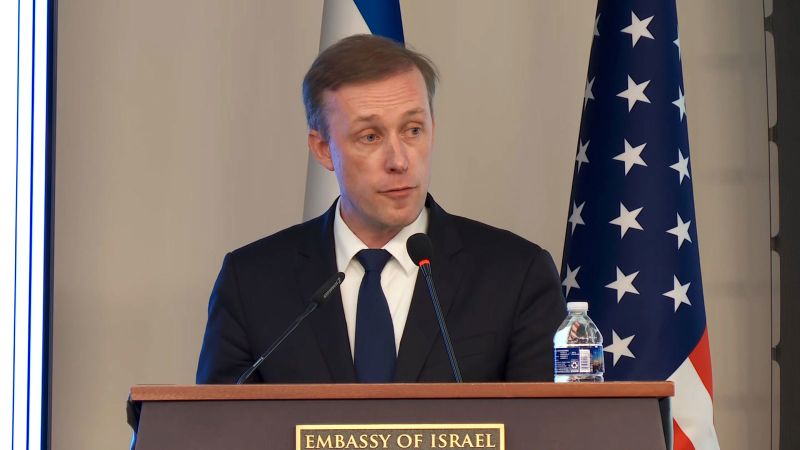
White House National Security Adviser Jake Sullivan speaks during event at the Israeli Embassy in Washington DC marking the anniversary of October 7
Israel needs to “turn tactical wins in battle into a strategy that secures Israel’s people and its future,” the White House national security adviser said at an event commemorating one year since the October 7 attacks.
“It takes foresight to match the conduct of war to a clear and sustainable set of objectives, and to turn tactical advantage into enduring, strategic gains,” Jake Sullivan said at the Israeli Embassy in Washington, DC, referring to the war in Gaza. “That is never easy, but it’s imperative, and we are here to work with you on that.”
His forward-looking comments were echoed by State Department spokesperson Matthew Miller earlier Monday. He said at a press briefing that it’s “very difficult to answer” whether Israel is safer in the long-term after one year of the war in Gaza.
“Certainly, Israel is safer when it comes to the immediate threat that Hamas bears to the Israeli people. Hamas can, in no way, today launch an attack with the size, scale and scope of the attack it launched on October 7. So when it comes to dealing with the threat from Hamas, Israel is safer, at least in the short term,” Miller said.
However, “as long as Israel is mired in conflict in Gaza, as long as it is dealing with an unstable situation on its northern border, as long as it is dealing with unrest and insecurity in the West Bank, ultimately, its security is never going to be assured,” he added.
Miller said that there must be a path forward on “governance in Gaza by someone other than Hamas.”
Add occupation, apartheid and illegal settlements to the obstacles standing in the way of Israel's security.
